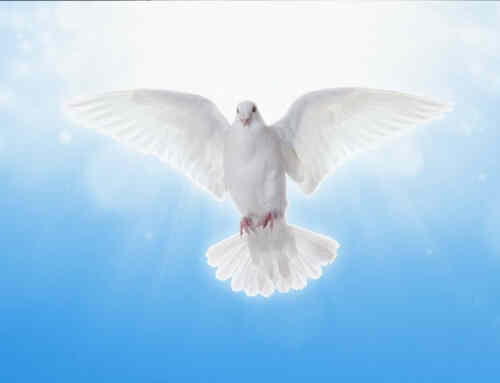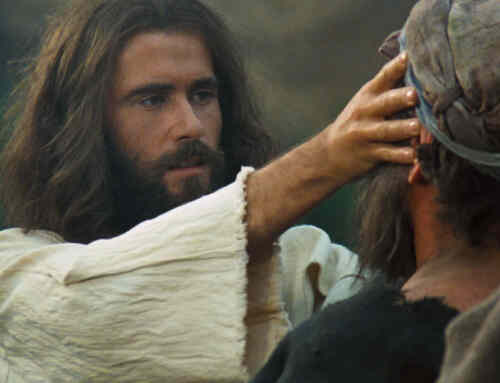Genesis 1:2, “And the earth was without form, and void, …And the Spirit of God moved upon the face of the waters.” The word Spirit is the Strong’s Hebrew word H7307, “ruach”. Strong’s Concordance defines “ruach” as “wind; by resemblance breath…” Some of the ways this word is translated are air, anger, blast, breath, courage, mind, spirit, tempest, and wind. It appears 378 times in the Old Testament.
Matthew 3:16, “And Jesus, when he was baptized…the heavens were opened unto him, and he saw the Spirit of God descending like a dove, and lighting upon him” Spirit in the New Testament is Strong’s word G4151, “pneuma.” Strong’s Concordance defines it as “a current of air, that is, breath (blast) or a breeze…” It is translated as ghost, life, spirit, spiritual, and mind. Pneuma appears 385 times in the New Testament.
Essentially, the Holy Spirit is God’s invisible power or force. Similarly, the wind is invisible, yet we can see its effect wherever it blows. There are no Scriptures which call the Holy Spirit God. I Corinthians 8:6 speaks in harmony with this, “there is but one God, the Father, of whom are all things…and one Lord Jesus Christ, by whom are all things…” God plans, Jesus enacts the plan. The Holy Spirit is the means by which God exercises his unseen power. To give the Holy Spirit personhood confuses the clear meaning of scripture.
The word “Trinity” is not used even once in the Bible! It was coined by Theophilus of Antioch (died 183 A.D.) a full 150 years after our Savior’s crucifixion. “Trinity” according to Theophilus did not to refer to the Father, Son and Holy Spirit. Theophilus himself puts it as “God, his Word (Logos) and his Wisdom .” Arguments to define “Trinity” took place over the next 200 years. The church was deeply divided over whether to even accept this theological novelty not authorized by scripture and many places not under Rome’s power did not accept it. Fighting over the “Trinity” led to Emperor Constantine calling the Nicean Council (325 AD) but the unsatisfying compromise at Nicea led to subsequent church councils over the next 50 years. To bring order from this chaos, Emperor Theodosius issued the Edict of Thessalonica (27 February 380) “…let us believe in the one deity of the Father, the Son and the Holy Spirit, in equal majesty and in a holy Trinity. We authorize the followers of this law to assume the title of Catholic Christians; but as for the others, since, in our judgment they are foolish madmen, we decree that they shall be branded with the ignominious name of heretics…


















